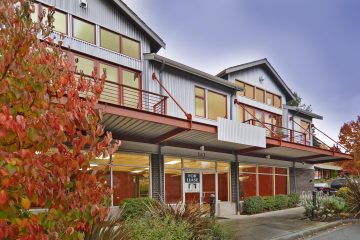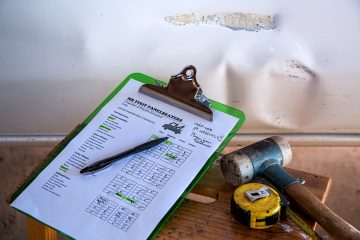Insurance Guide for New Home Buyers
First-time home buyers have a lot on their plate. Every step of the way is uncharted territory, so you have to rely on advice from experts along the way. One of these steps is obtaining insurance on the new home, and it was once a relatively easy step when using a trusted agent. However, due to stricter new business requirements from insurance carriers, the need for accurate information is much more important. From an insurance agent’s perspective, here are a few things to watch out for and pay attention to when looking for a new home.
Roofs
The hottest topic in insurance has become the age and condition of the roof of a home. With the increased frequency of storms in the Midwest, it’s become difficult to insure homes with older roofs or roofs in poor condition. When a roof gets past 20 years old, it becomes tougher to find a carrier that will insure the home. New home buyers should make sure to get documentation of when the roof was last replaced. This will make it much easier to get an accurate insurance quote.
Updated Mechanicals
When it comes to older homes, it’s super important to have updated mechanicals – electrical, plumbing, and HVAC. The home should be updated to circuit breakers. Homes with fuses are extremely difficult to insure. Plumbing lines made of copper, PVC, and PEX are generally preferred. Galvanized steel plumbing is outdated and can be difficult for an insurance carrier to approve if still in the home. Home buyers will want to be aware of plumbing lines when searching for their potential home.
Exterior of the Home
Most insurance carriers have started to use new technology when underwriting homes. This includes drones and satellite images of properties. Using this technology, underwriters are able to get an idea of the condition of the roof as well as any potential hazards on the premises. If large, unkept, or dead trees are discovered on the property, they could be required to be taken down in order for the carrier to accept the policy. Branches that extend over a home or detached structure may also be required to be trimmed.
Detached Structures
Any other structures, including detached garages or sheds, have also become an underwriting focus point. All detached structures must be kept in good condition in order to be acceptable. Structures with poor/peeling paint or siding, damaged windows, poor roof, rotting exterior, etc., may be required to be fixed for those structures to be included on a policy.
Sump Pump
When it comes to finished basements, make sure a home has a functioning and updated sump pump. A well-functioning sump pump can protect against potential water damage to the finished basement or mechanicals nearby. A battery backup or generator is recommended and can come in handy in case of a power outage.
Trust your Agent
The home insurance market has evolved over the years, which has elevated the need for a trusted insurance agent. Your agent understands this evolution and will work to properly insure new home buyers and their home while staying within budget. The insurance market may change, but the overall protection of your home should remain consistent.


